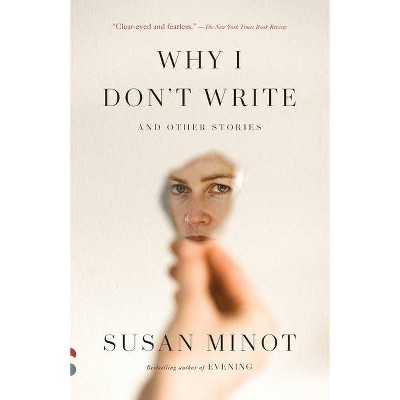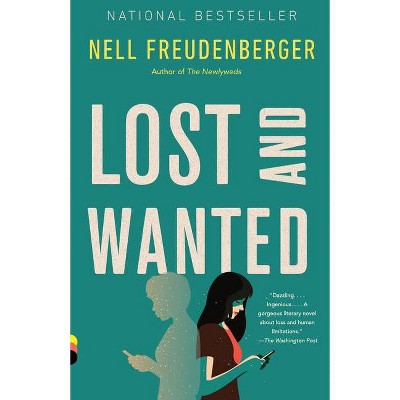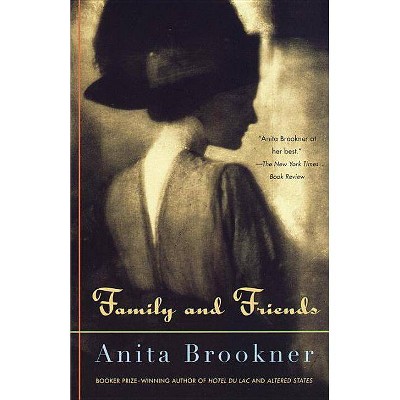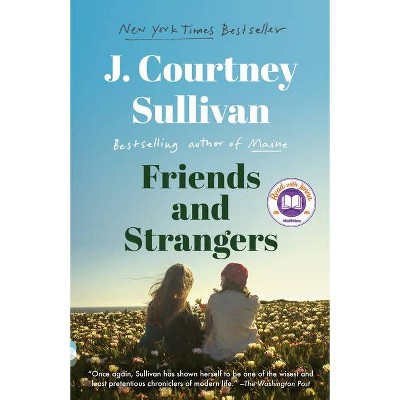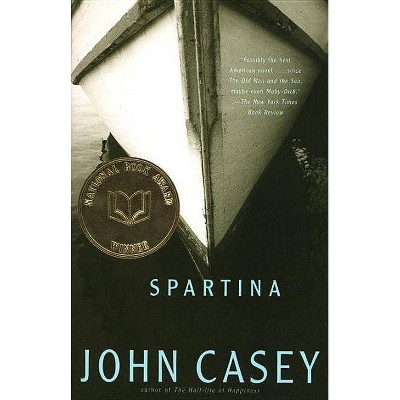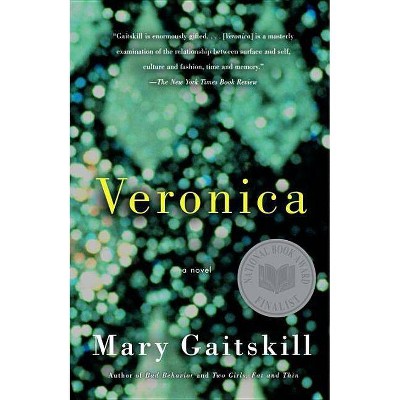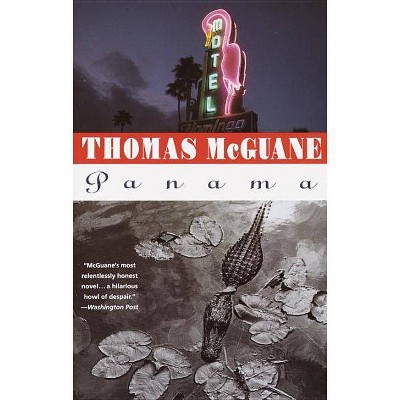How to Set a Fire and Why - (Vintage Contemporaries) by Jesse Ball (Paperback)
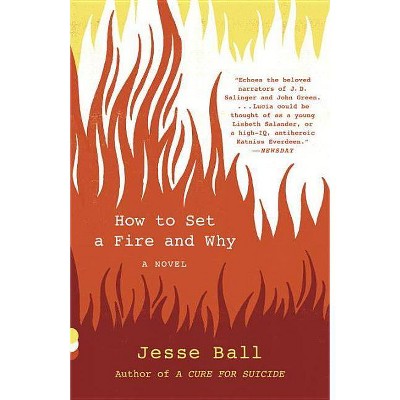
Similar Products
Products of same category from the store
AllProduct info
<p/><br></br><p><b> About the Book </b></p></br></br>"How to Set a Fire and Why is a blistering, singular, devastating novel by Jesse Ball ("A young genius who hits all of the right notes."--Chicago Tribune) about a teenage girl who has lost everything and will burn anything. Lucia has been kicked out of school, again, this time for stabbing a boy in the neck with a pencil. Her father is dead; her mother is in a mental institute; and she's living in a garage-turned-bedroom with her aunt. Making her way through the world with only a book, a Zippo lighter, and a pocket full of stolen licorice, Lucia spends her days riding the bus to visit her mother in The Home, avoiding the landlord who hates her, and following the only rule that makes any sense: Don't Do Things You Aren't Proud Of. When Lucia starts at Whistler High it seems no different from the schools that came before: girls play field hockey, chasing the ball like dogs, the school psychologist has beanbag chairs in her office, and detention means sitting silently surrounded by stupid people ("I am a veteran of detention"). But when Lucia discovers a secret Arson Club, she will do anything to be a part of it. With a biting wit and striking intelligence that she can't fully hide, Lucia animates her small-town life: the parties at an abandoned water park, visits to the 24-hour donut shop where her friend Lana's cousin works, the little island in the middle of a medical park where kids go to drink. As Lucia's fascination with the Arson Club grows, her chronicle becomes a riveting story of family, loss, misguided friendship, and destruction"--<p/><br></br><p><b> Book Synopsis </b></p></br></br><b>"Ball has created a voice that echoes the beloved narrators of J. D. Salinger and John Green. . . . With her tragic past, brilliant mind and subversive potential, Lucia could be thought of as a young Lisbeth Salander, or a high-IQ, antiheroic Katniss Everdeen, but with a better sense of humor." --<i>Newsday</i></b> <p/>Lucia Stanton's father is dead, her mother is in a mental hospital, and she's recently been kicked out of school--again. Living with her aunt in a garage-turned-bedroom, and armed with only a book, a Zippo lighter, and a pocketful of stolen licorice, she spends her days riding the bus to visit her mom and following the only rule that makes any sense: Don't do things you aren't proud of. <p/> When Lucia discovers that her school has a secret Arson Club, her life is suddenly lit up; she'll do anything to join. Edgy, raw, and hilarious, <i>How to Set a Fire and Why </i>is a thrilling story about growing up the hard way.<p/><br></br><p><b> Review Quotes </b></p></br></br><br>"A high-spirited, edgy coming-of-age novel... Ball has created a voice that echoes the beloved narrators of J.D. Salinger and John Green... With her tragic past, brilliant mind and subversive potential, Lucia could be thought of as a young Lisbeth Salander, or a high-IQ, antiheroic Katniss Everdeen, but with a better sense of humor... This is perfect summer reading." <br> --Marion Wink, <i>Newsday <p/></i>"The most remarkable achievement of this novel is its narrative voice. It belongs to Lucia Stanton, the novel's disaffected, Holden Caulfield-style young narrator and heroine. Lucia is a marvelous creation and the richness of her voice -- its intelligence, its casual precision -- is felt on the very first page.... Sometimes, you hear the ghost of Kazuo Ishiguro's flat, chilly style. At other times... Borges-like parable cross-pollinates with Margaret Atwood-style dystopia."<br> --Anthony Domestico, <i>The Boston Globe </i> <p/> "Extremely well done: swift, sharp-tongued and enlivened by cockeyed humor." <br> --<i>The Wall Street Journal </i> <p/> <i>How to Set a Fire and Why</i> is a rare and startling work. Days after I read it, I find that I can't stop thinking about it, and what I've realized is that this is a book I will not forget. This is a harrowing, subtle, and absolutely electrifying novel.<br> --Emily St. John Mandel, bestselling author of <i>Station Eleven</i> <p/> "Characterized by Ball's stand-out prose, this book will find you in the deepest places."<br> --<i>Bustle </i> <p/> "In Jesse Ball's sixth novel--part thriller, part coming-of-age story--a teenager seeks escape through fire. . . . One of the triumphs of the novel is the delicacy with which Ball opens his narrator's smart-aleck voice just wide enough to admit a sincere measure of wonder and dread. . . . Ball calls himself a fabulist but he is also a deeply moral writer, with a fine sense of tragedy. His view of the world might be described as tender nihilism. . . . Ball's novels, despite their gamesmanship, eerie mysteries, and senseless acts of violence, are ultimately celebrations of compassion--our best hedge against suffering. . . . He poses an alternative vision of reality, filled with grand conspiracies united against oppressive systems of rule, Byzantine puzzles that can be solved with ingenuity, and romantic acts of heroism. His fiction is suffused with a melancholy that derives from the knowledge that the real world is indifferent to such elegant fantasies. . . . Ball invites his readers to join a secret confederacy that rejects modern life's false parade of garbage. It is a confederacy that accepts the implacable demands of entropy and death but nevertheless seeks comfort in puzzle-solving, the exhilaration of a caper, and selfless acts of compassion." <br> --Nathaniel Rich, <i>The Atlantic </i> <p/> "Ball's surreal novels... have made him into one of the most acclaimed experimental writers to come out of Chicago in years. Ball, who was just named a Guggenheim fellow, creates worlds that exist somewhere between the known and the unknown, the real and the absurd... His work has garnered attention... for its ingenious depictions of well-intentioned characters who must negotiate difficult mazes of tragedy and the unending tangles of unjust social systems.... Ball's work is as spellbinding as it is daring." <br> --Joe Meno, <i>Chicago Magazine</i> <p/> « "In Ball's latest imaginative and provocative novel, Lucia seizes her place among American literature's brainy, questioning, besieged, and determined young female narrators...Ball's pitch-perfect voicing is mesmerizing as Lucia chronicles her experiences to help her make sense of her predicament. A pithy, deadpan-funny, scalpel-sharp, and, beneath her flinty adolescent bravura, deeply compassionate observer, Lucia recounts her increasingly harrowing misadventures and presents a fiery manifesto... Readers will share Ball's adoration of this incisive and valiant young survivor from whom life cruelly subtracts nearly everything but her incandescent intellect, blazing wit, and radiant sense of justice."<br> --Donna Seaman, <i>Booklist </i>(STARRED review) <p/> "Immediately intriguing... Lucia's curation of the truth is the only one the reader knows. Ball's convincing connection with what it is to be a teenager is aided by the fact that Lucia is atypical... Her peculiar brand of nonconformity remains true to the nature of teen... but she also has a level of erudition and knowing that allows for great insight... All that's written, all Lucia's actions and decisions, seem not just believable but somehow right...There's beauty in the simplicity, in the story that's told, in the plight of one girl to find what's true."<br> --Emma Young, <i>The Sydney Morning Herald </i> <p/> "Lucia is a seriously troubled teen girl, ready to burn it all to the ground, who has her world entirely changed when she discovers the Arson Club at her new school. Covering questions of morality, choice, and destruction, the novel hits a chord with the rebellious, feeling, overwhelmed teen in all of us."<br> --Elena Sheppard, <i>HelloGiggles </i> <p/> "Jesse Ball has written an unforgettably memorable character in the pyromaniac Lucia, who anyone who was once a cynical teenager will recognize and relate to."<br> --Jarry Lee, <i>Buzzfeed</i> <p/> « The beautifully blunt narration of a gifted delinquent propels this excellent sixth novel.... Lucia details a philosophy that smartly parallels the novel's own--namely, that writing literature is, like arson, an act of creation and destruction.... Thrilling.... A song of teenage heartbreak sung with a movingly particular sadness, a mature meditation on how actually saying something, not just speaking, is what most makes a voice human. <br> --<i>Publishers Weekly</i> (STARRED and BOXED review) <p/> "Told by a teenage protagonist who can't manage to stay in school in spite of her knack for seeing straight through to the truth that underlies things. She's a lovable misfit worth hanging out with."<br> --Maddie Crum, <i>The Huffington Post </i> <p/> "A troubled adolescent girl dreams of setting fire to the world. It starts with a stabbing and ends with a conflagration, and, in between, the novel never once telegraphs where it's going... It's never quite what you expected. In this stark epistolary novel, the author fully occupies the inner life of a teenage girl, Lucia Stanton... A brilliant portrayal of a girl who's quite aware of what she's going through." <br> -<i>Kirkus Reviews</i> <p/> "I was captivated from the first line. Introducing the teenage narrator of Jesse Ball's novel <i>How to Set a Fire and Why: </i> Lucia. Who can't stay in high school, who lives in a converted garage with her broke and eccentric aunt, whose garden is boisterously weedy, whose mother is in a mental institution, whose father is dead, and who always tells the truth about what matters. Lucia belongs with all the great child truth tellers: David Copperfield, Huck Finn, Holden Caulfield. She has a rapier wit, an infallible nose for hypocrisy and injustice, and is always in trouble. She is subversive and funny and has a capacity for love that outstrips her circumstances. And she is much smarter than most of the plodding adults around her. Her manifesto on arson read a little like parts of Walden. I loved her and I loved the book, every page of it." <br> --Peter Heller, bestselling author of <i>The Dog Stars </i>and <i>The Painter</i> <p/> "If you didn't know Ball's off-kilter, engagingly experimental writing by the time 2014's<i> Silence Once Begun</i> became a finalist for the Young Lions Fiction Award and the Los Angeles Times Book Prize, surely you started reading him when last year's<i> A Cure for Silence</i> was long-listed for the National Book Award. And here's another chance... Her father dead and her mother institutionalized, sharp-tongued, sharp-witted Lucia lives with her aunt and gets herself thrown out of school after school. At the latest one, she's drawn to the secret Arson Club, a great place to meet like-minded teenagers, but you know it sounds bad."<br> --<i>Library Journal </i><br><p/><br></br><p><b> About the Author </b></p></br></br><b>JESSE BALL</b> (1978- ). Born in New York. The author of fourteen books, most recently the novel <i>How to Set a Fire and Why. </i>His works have been published to acclaim in many parts of the world and translated into more than a dozen languages. He is on the faculty at the School of the Art Institute of Chicago, won the 2008 Paris Review Plimpton Prize, was long-listed for the National Book Award, and has been a fellow of the NEA, Creative Capital, and the Guggenheim Foundation.
Price History
Price Archive shows prices from various stores, lets you see history and find the cheapest. There is no actual sale on the website. For all support, inquiry and suggestion messagescommunication@pricearchive.us
